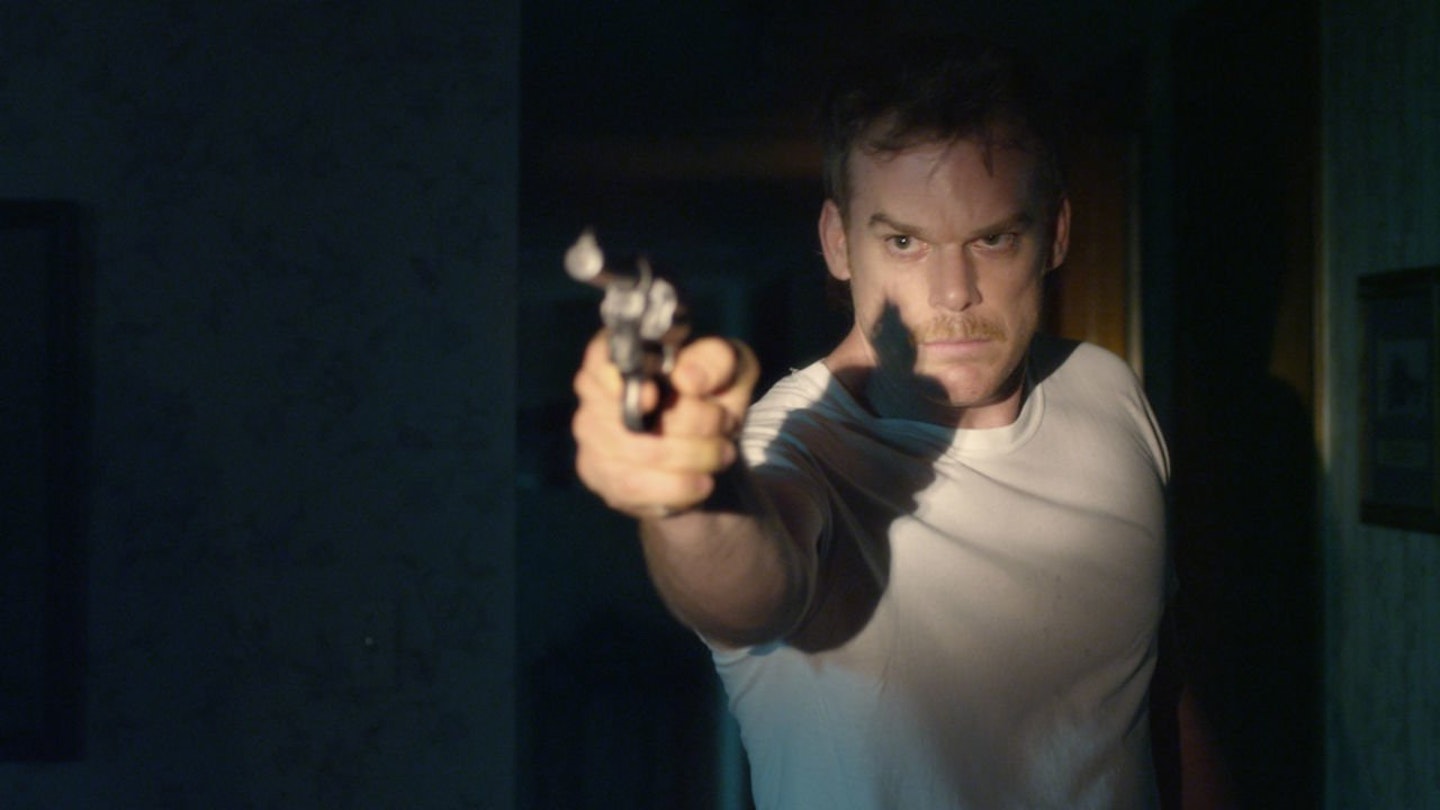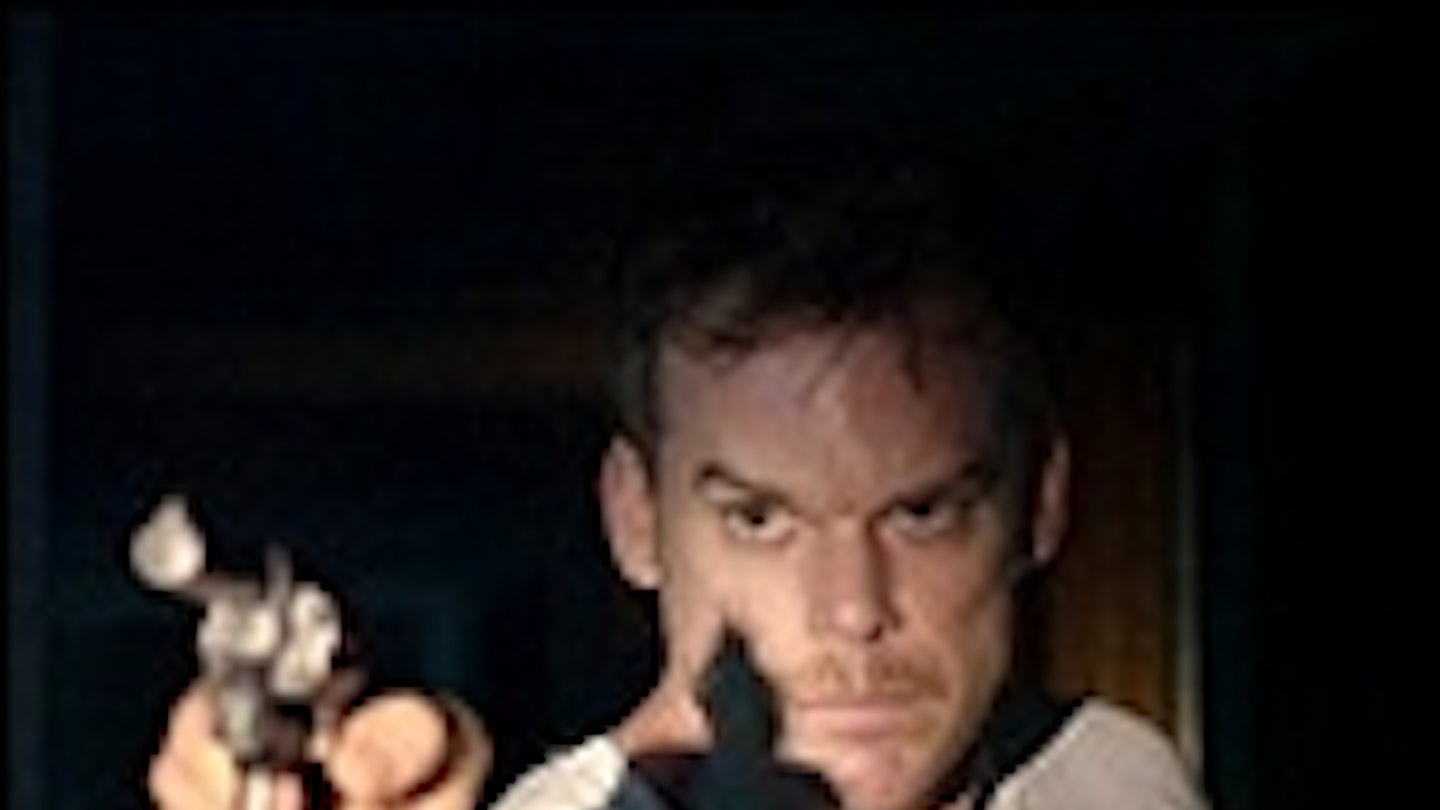Director Jim Mickle – who regularly works with writer/actor Nick Damici — has built up a solid indie genre reputation with Mulberry Street (aka Zombie Virus On Mulberry Street), Stake Land and the We Are What We Are remake. Here, he has the benefit of terrific source material in Joe R. Lansdale’s Texas noir novel — Lansdale’s only previous big-screen credit is the fun horror Bubba Ho-Tep — and gets great work from three interestingly contrasted tough-guy actors.
Michael C. Hall, of Six Feet Under and Dexter, usually plays crazies, but here he starts out as a mulleted average citizen with a family, sweating as he loads a gun. Then circumstances drag him into a murky world that — disturbingly — he starts to feel comfortable in. Sam Shepard, recently most often seen in behind-a-desk cameos, shows his still-powerhouse charisma as a man of ferocious will and dark integrity; it’s ironic that, as a writer, Shepard always has characters talk in paragraphs when, as an actor, he can do so much with simple looks. The trio is completed by Don Johnson as a cowboy-hatted, pig-farming private eye who fills in the brooding spaces between the other characters with hilarious non sequitur chatter.
Lansdale’s plot begins in parallel with David Cronenberg’s A History Of Violence — they have a shared debt to a certain type of 1950s man-alone-against-outlaws Western — and both versions of Cape Fear, but a major reversal triggered by the actions of a too-smooth-to-trust cop (Damici) sends the story in an unexpected direction. Vinessa Shaw is slightly short-changed as Hall’s left-at-home wife, as Dane — traumatised by his own single act of violence — drifts away and becomes an obsessive avenger of sorts.
Mickle preserves the book’s period with unforced ease (a video-rental store is a key location, which is presumably why the story isn’t updated), and Jeff Grace (another name to remember) provides an outstanding score which evokes John Carpenter’s classic suspense-by-synthesiser mode.





